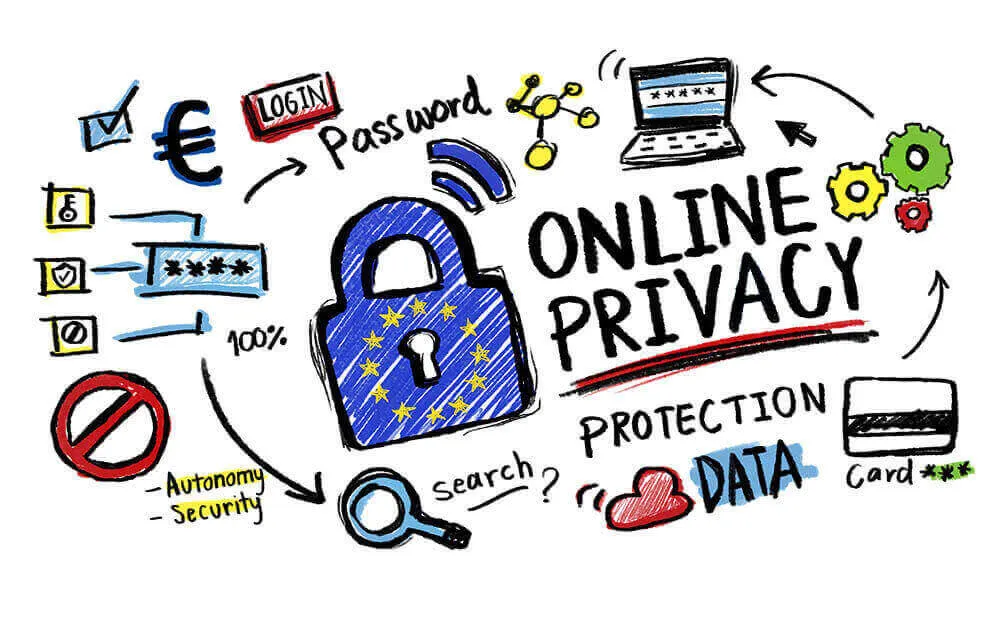The Fairytale of Privacy
If we’re entitled to privacy offline why isn’t it as consistent online?
Privacy is something that we deserve but social networks deceive us into voluntarily providing our private information. The trick is that they don’t hold a knife to our throat but rather invite us into their homes and make us feel comfortable enough to overshare. From the food we eat, the places we travel to and even the most intimate details of our sex lives. There seems to be no need for privacy policies and restrictions since we’re willingly providing them with our information. The issue here is that we’re not aware of the intricate details we provide to social networks but they are. We’re all victims to it. As the CEO of Mashable, Pete Cashmore, said: “Privacy is dead, and social media holds the gun.”
Before 2018, data collection and mining was a myth or simply a conspiracy theory on YouTube. However, when it was revealed that the British data research company, Cambridge Analytica, collected personal information from over 10 million Facebook users and their online friends, this myth became a reality. From an unsuspecting personality quiz, they were able to build profiles on almost every United States citizen and use it to their client’s, Donald Trump, advantage. This resulted in only 700,000 genuine voters. Sadly, over 135 million people were influenced by their marketing campaigns. By simply acquiring data through a third-party app, This is Your Digital Life, Cambridge Analytica had almost an entire country’s personal information at their fingertips.
Why is This Relevant to The Caribbean?
Their influence was not only limited to the United States elections but also elections in Australia, India, Kenya, Mexico, Argentina, The United Kingdom and, most importantly, some Caribbean countries. The holding company of Cambridge Analytica, SCL Group, played a significant role in influencing citizens’ decision in elections and referendums in St. Vincent and The Grenadines, St. Kitts and Nevis and Trinidad and Tobago.
In St. Vincent and The Grenadines during 2009, SCL Group was hired to stop a new constitution that would have replaced the previous one that was enacted when they gained independence in 1979. The new referendum would have also concluded Queen Elizabeth II’s symbolic rule but SCL ensured that it was not successful. The company also ran a smear campaign against Prime Minister Ralph Gonzales that they referred to as a “targeted digital attack.”
In 2010, they were hired to aid in Denzil Douglas’ election campaign against Lindsay Grant. In an attempt to defame Grant, they hired an undercover journalist to pose as a British property investor that was interested in 200 acres of the country’s land. The recorded meeting between the two men revealed that Grant was willing to sell the land under market value in exchange for USD 1.7 million to fund his campaign. The meeting was later posted to YouTube a few days before elections. SCL’s unethical actions resulted in Denzil Douglas becoming Prime Minister.

The same year in Trinidad and Tobago, they collected data on the country, unknowing to the public, and created a specific campaign that targeted Afro-Trinidadians — who were more inclined to support their client’s competition — to not vote and instill widespread apathy among them. They accomplished this by creating a slogan, “Do So!” The campaign used flyers, merchandise, and graffiti around the island to spread the message, specifically to the youths.
These three cases make us question if democracy truly exists and if elections have always been corrupted and unethical but we’re now gaining insight because of technology. We even have to question what The SCL Group did with the data they collected, what they used it for other than elections and how did our leaders allow this to take place. A large percentage of the Caribbean’s population is still unaware of this deception. I, myself, wouldn’t have known about these data companies’ involvement in the Caribbean if I did not watch the documentary ‘The Great Hack’. There might not be a direct solution that we as citizens could do to stop corruption and unethical behaviour but we can control the data that social networks obtain from us.
Protect Your Data
You should always read the terms and agreements of an app. By ignoring them you could sign away your privacy with one click. Even though data is collected to improve the functioning and services of an app, it can also be sold to a third party for monetary gain. Terms and Conditions are usually updated often so a quick check is always good. Due to technical vulnerabilities, apps should only be downloaded from reliable sources. The presence of third parties opens the door to content hacks and phishing scams, especially smaller and less popular apps. By personally managing the content that you share online you limit the data that can be used against you. Restrain from sharing information that you wouldn’t like a stranger knowing. Also, protect the privacy of those who can’t do it themselves — babies, children and the elderly. When creating an account use secure passwords and different passwords for each account you start. By using a secondary email for these accounts, it safeguards the details that you may have in your primary email. You don’t want to be like Hilary Clinton — lol. If you’re extremely traumatised by it all there is a way to permanently removeyour digital footprint.
Regardless of the measures that can be taken, we shouldn’t have to put so much effort into protecting what should remain private. I await the day that adequate measures are implemented to safeguard our data.
Article originally published here.


Leave a Reply